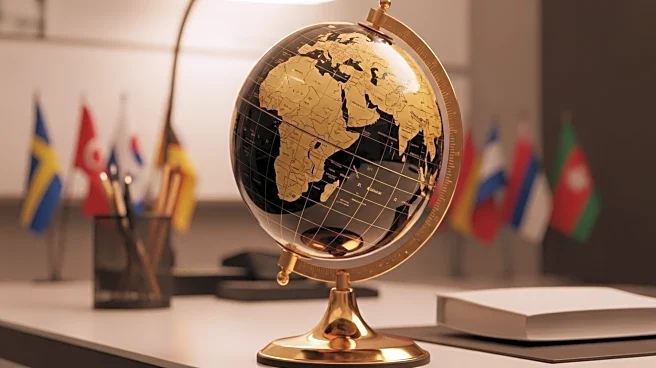What is the story about?
What's Happening?
Former Representative Mike Waltz, recently confirmed by the U.S. Senate as the United Nations Ambassador, will not be part of President Trump's Cabinet, according to sources. This decision reflects a shift in the administration's approach to the U.N., which President Trump has criticized for not meeting its potential. Historically, the Cabinet status of the U.N. ambassador has varied, with previous administrations like those of Ronald Reagan and Barack Obama including the role in their Cabinets, while others, such as George W. Bush, did not. Waltz, who is well-regarded within the U.S. Mission to the U.N., will focus on advancing U.S. interests globally, though he will have less direct access to the President compared to Cabinet members.
Why It's Important?
The exclusion of the U.N. ambassador from the Cabinet underscores President Trump's critical stance towards the United Nations, which he has accused of inefficiency and ineffectiveness. This move could signal a reduced emphasis on multilateral diplomacy in favor of more direct, bilateral engagements. The decision may impact how the U.S. engages with international bodies and could influence global perceptions of U.S. foreign policy priorities. Stakeholders in international relations and diplomacy may need to adjust their strategies in response to this shift.
What's Next?
With the next Cabinet meeting scheduled for October 9, it remains to be seen how this decision will affect the dynamics within the administration and its foreign policy agenda. Ambassador Waltz will likely coordinate closely with Secretary of State Marco Rubio, who oversees U.S. ambassadors, to navigate major decisions. The administration's approach to the U.N. and other international organizations will be closely watched by global leaders and diplomats.















